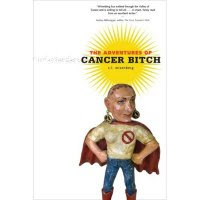
I have been in therapy, off and on (mostly on), probably longer than many of you have been alive. The short version is, to quote myself on June 13, 2007: I have "the essential feeling: that I do not deserve to live. That I should perish soon. I was not made to live a long time. I was made to live tragically." That sounds melodramatic but it's true. In therapy today I said that this feeling was based on having asthma and thinking,from a young age, that I was able to live only with the outside help of medications, and that if I were born into poverty or if I had been imprisoned in a concentration camp (during a war that ended before I was born), I wouldn't last long. I realized today that to imagine dying in a camp is to give power to the Nazis; to say that under their system I would have perished, and therefore don't deserve to live, is to say in effect that they were right, that the white gloves of Eichmann (pointing to the left or to the right) was a proper way to determine an innocent person's destiny. I was endorsing using torture as a way to determine a person's fitness, letting murderers and madman set a standard. That is crazy. And that is, as I've said before, why I wrote a book called Holocaust Girls, to describe people (like me) who had nothing to do with the Holocaust, but are obsessed with it. Part is the frisson of "there but for fortune would go I," the thrill of having avoided a disastrous fate; and part is that certain of us need an outward symbol of our inner suffering. This is why the crucifix is such a powerful image, and my explanation for the conversion of certain Jews, such as Simone Weil, is that depictions of Jesus on the cross captured their own agony. I think this also explains the power of certain saints. For example, today I said that I felt like St. Sebastian, with arrows stuck in me.
I had a friend in college who said that he felt that his metaphysical core was like an empty roll of toilet paper. He felt that he did not have substance, a deep sense of self. I do have that but I think that I must also have within me a metaphorical magnet that pulls the arrows from the bows of others. My sense of (the rightness of) self is so easily waylaid. Undermined.
Yesterday I was choosing a book on my shelves to read on the L and picked out Hitler's Exiles: Personal Stories of the Flight from Nazi Germany to America, edited by Mark M. Anderson, whom I have met. I was self-deprecating about the choice--more of the same about what I already know, nothing new. But today I realized that I was reading about sense of self by a shipping magnate picked up by the Gestapo in early 1937: "Suddenly it struck me that I was a defenseless prisoner. I was no longer the respected Arnold Bernstein, proud of my record, strong and safe. Suddenly I felt that I was in the hands of ruthless enemies who would not respect either law or human rights and that all my decent life and my merits would be of no help." The world around him has gone crazy, the pressure is so great on people who've been arrested that another writer felt that after four hours of cross-examination, "I had arrived at a stage of exhaustion where I would have admitted anything. I began to understand how under pressure people will sometimes admit things they have never done." (Alice Salomon, born Jewish, converted to Christianity)
Is my point becoming clear? It's that Bernstein was so certain that his "good conscience" and powerful position would keep him safe, though he was planning to leave Germany soon, sailing away on the Queen Mary. He grasped that the system was topsy-turvy, everything rigged against him and his fellow Jews, that the innocent would be found guilty and imprisoned--at best. I seem to be implying that under these conditions I would have started feeling guilty. I don't think I would have, though the very least thing makes me feel guilty now. But I am struck by Bernstein's self-possession. He was afraid of being beaten only because he was afraid he'd "attack the offender with all the consequences to be expected during the Nazi regime." He's put on trial and is determined to fight, and show that he is innocent and that the perpetrators are the criminals. His sense of his own goodness turned out to be a detriment, keeping him in Germany longer than he should have stayed. Yet this sense sustained him, during imprisonment. I feel I can handle the large affronts. It's the small ones that get to me, and I would like to have Bernstein's strength to withstand them.
He was sentenced to almost two years in prison, on trumped-up charges of treason. When he was released he immigrated to New York, where he started all over again, founding another shipping company, which was not nearly as successful at the one in Germany, which he had been forced to turn over to the Nazi government.

"...every time I think of the crucifixion of Christ I commit the sin of envy."--Simone Weil








